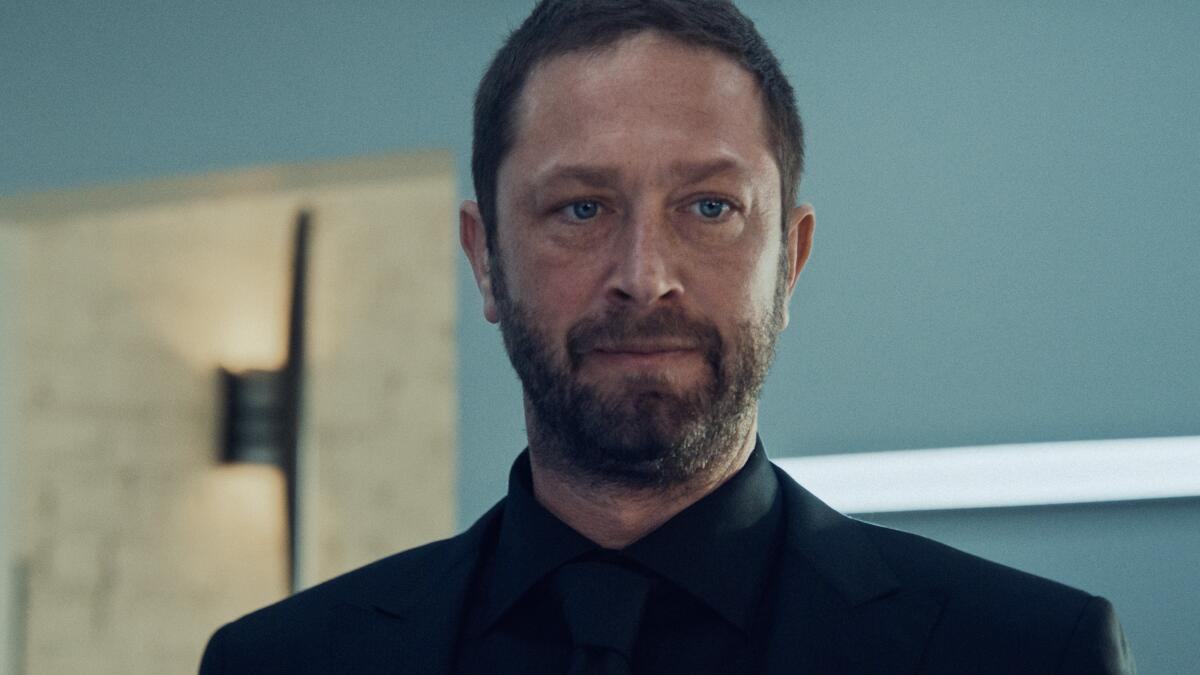To somewhat understate the case, the new, third season of FX’s “The Bear,” back Wednesday on Hulu, is as magnificent as television ever gets. I’m not here to tell you what happens in it, but it’s not particularly a plot-driven season in any case — though there are challenges the characters face and the question, which hangs over the entire series, of who and what will manage to hold together, and who and what will break apart.
Created by Christopher Storer, who writes and directs many of the episodes, it’s a fundamentally musical show — and not just in terms of its use of recordings to underscore or create counterpoint with the action, which is standard screen practice, but constructed tonally, rhythmically. Words matter, of course — though probably fewer than 100 are spoken in the opening episode, a nonlinear montage of past and present moments set over a floating ambient score — but the impact of the series is less literary than it is musical; it lights up the limbic system.
With Sydney (Ayo Edebiri) by his side, Carmy (Jeremy Allen White) elevates his staff at the Bear into fine-dining professionals.
(FX)
As a season, it’s an album, changing from track to track, much as Carmy (Jeremy Allen White) wants to remake his menu from day to day. It’s arranged in short and long movements, in major or minor keys, at tempos marked largo or moderato or prestissimo, with passages played fortissimo or pianissimo. Dissonance dissolves into consonance, consonance is drowned in dissonance. There are motifs (lots of clocks) and quotations. (Characters from the past reappear; R.E.M.’s “Strange Currencies,” the de facto “Love Theme from ‘The Bear,’” sneaks in.) Ensemble sections alternate with duets, trios, solos, tightly arranged or seemingly improvised. Each player is their own instrument, an individual timbre; the series isn’t so much edited as orchestrated. It’s an opera at times, a ballet at others.
There is a heartwarming unreality at the heart of “The Bear,” which began as “The Bad News Bears,” with beef sandwiches; now the team has advanced into the major leagues. Apart from Sydney (Ayo Edebiri), Carmy’s voyage into fine dining relies entirely on the staff he inherited from his late brother Mikey (Jon Bernthal), which, overcoming their resistance, he inspired, retrained and, as they say in the cooking competitions, elevated. There’s no question of trading them for seasoned professionals because all that matters within the world of “The Bear” is family, the people who know you, the people you know, who put up with you and whom you put up with, those who want, or at least will sit still to hear your stories and those whose stories you want to hear. This intimacy allows for scenes to play in fragments, without too much explanation. But we understand how the characters understand (or fail to understand) one another, and themselves.

Richie (Ebon Moss-Bachrach), unlike Carmy, is moving toward self-improvement.
(FX)
“The Bear” is, in its very premise, a story about food, the preparation of which is lovingly captured; but ultimately it’s more about service than cooking, more about the community a restaurant creates than any genius creating the dishes. (“I like the people,” says Mikey, in a flashback to his first meeting with Liza Colón-Zayas’ Tina.) Working at the point of contact between the back and front of the house makes Richie (Ebon Moss-Bachrach), running the front of the house, an unlikely hero of continuing self-improvement, in contrast to his cousin Carmy, who is solitary, broken and stuck. (Literally stuck, in a walk-in fridge, at the end of last season.) Cinematographer Andrew Wehde brings his camera in extra close, hanging at length on an actor’s face, letting us linger over freckles and lines and scars, blood vessels in a tired eye. It’s this attitude of tenderness that makes “The Bear” not just great, but beautiful.
The season looks backward and forward, with episodes titled “Legacy” and “Children” and “Forever.” There is birth, and death. For much of the way it feels like a summing up, but we end on a suspended chord, with resolution hanging in the air.


